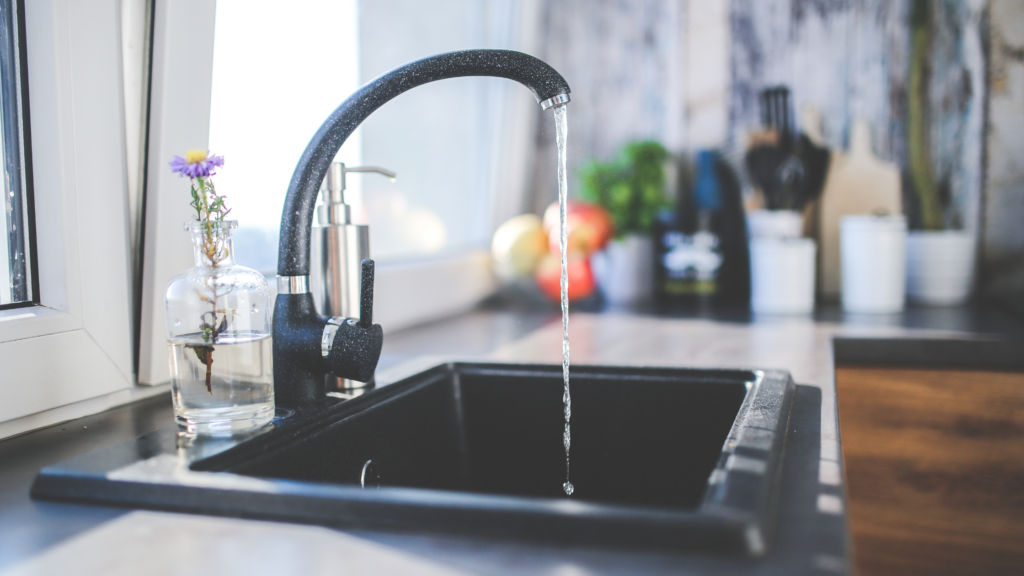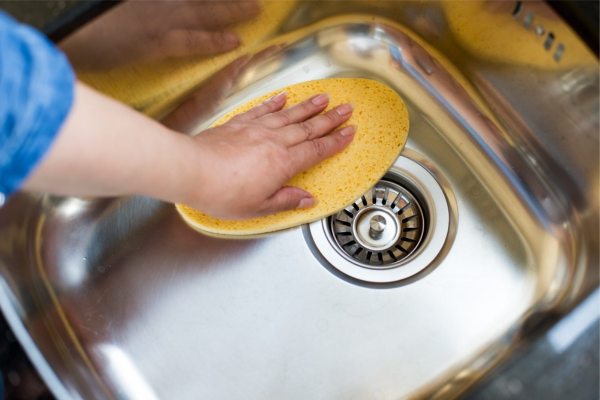
Maintaining a kitchen sink is essential for a variety of reasons. A kitchen sink is an important part of every kitchen since it is where we wash our dishes, clean our remains, and dispose of waste. As a result, keeping the sink clean and sanitary is important for avoiding the spread of germs and other harmful bacteria. Clogs, leaks, and unpleasant odors can all come from a poorly maintained sink, which can be uncomfortable and even unsafe. Likewise, disregarding maintenance might result in costly repairs or perhaps the need to replace the sink entirely. We may protect the sink’s longevity and avoid extra costs by keeping it clean and well-maintained.
Here are some tips and tricks to help you keep your kitchen sink in healthy hands.
CLEAN REGULARLY

Cleaning the kitchen sink on a daily basis is the key to avoiding the growth of hazardous bacteria and keeping it looking its best. Wiping the sink with a damp cloth after each use will help keep impurities away, and a weekly cleaning with a light detergent or soap can help remove stains and sanitise the sink. This easy practice will keep your sink looking great for a long time.
AVOID HARSH CHEMICALS

Strong chemicals such as bleach, ammonia, and abrasive cleaners can harm the finish of a kitchen sink, causing it to lose its shine and even color. Instead, use natural cleaning products like baking soda and vinegar to remove stains and sanitize the sink. Natural cleaning solutions are not only safer for your sink, but they are also better for the environment.
UNCLOG THE DRAIN

Clogged drains are a common problem that can result in stagnant water and unpleasant smells in the sink. Using a plunger or a drain snake to clear clogs and restore normal water flow is effective. Another option is to pour boiling water down the drain to dissolve any fat, food crumbs, or contaminants that have gathered.
CHECK FOR LEAKS

Take a look below the sink for leaks or drips is an important part of sink maintenance. Even small leaks can cause water damage to the surrounding area and, if ignored, can develop into more extensive damage over time. If you find any leaks, it is important to patch them right once to avoid further damage. Tightening loose connections or replacing damaged pipes or sealing are examples of this.
USE A SINK STRAINER

A sink strainer is a simple but useful tool for keeping food scraps and other materials from clogging the drain. A sink strainer may assist keep the sink clean and smelling fresh by collecting these particles before they enter the drain. Emptying the strainer and washing it with soap and water regularly can help to maintain its efficiency and avoid accumulation. Installing a sink strainer is a simple and affordable way to maintain your sink.
AVOID PLACING HEAVY OBJECTS

A kitchen sink’s surface is not designed to sustain considerable weight, and placing heavy objects like pots and pans directly on it might produce scratches and harm the surface. This might cause the sink to seem worn and dull over time. While placing heavy goods in the sink, it is recommended to use a protective mat or towel to avoid damage. This easy technique can help protect the finish of the sink.
RINSE THOROUGHLY

An important step in sink maintenance is properly rinsing the sink after each use. Soap residue can accumulate over time, leaving the sink with a foamy film that is difficult to remove. By completely cleaning the sink after each use, you may prevent soap residue from forming and maintain the sink looking clean. This simply takes a few seconds but may significantly improve the appearance and cleanliness of your sink.










